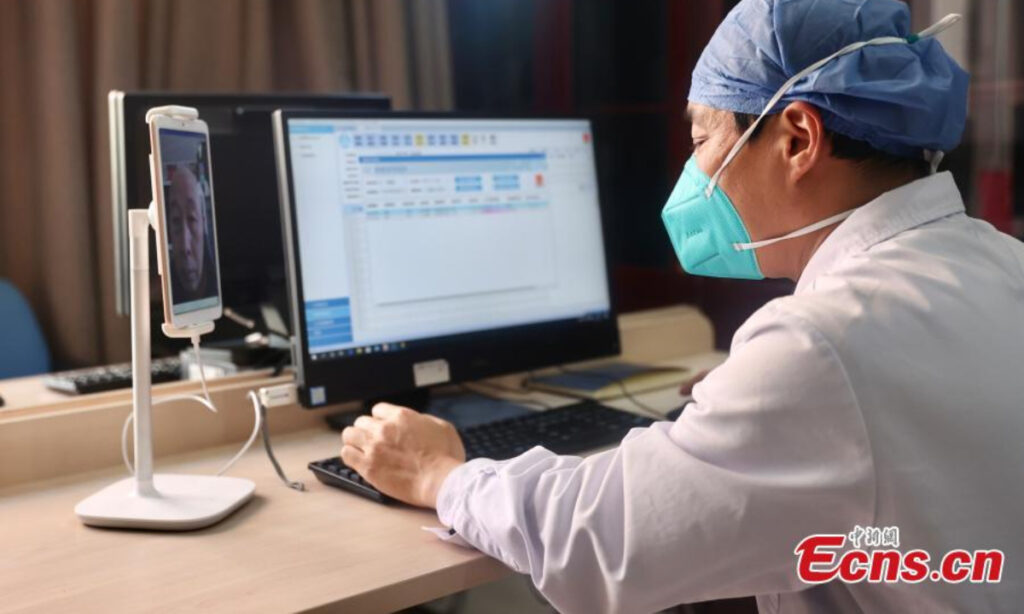Beijing municipal health authorities have started soliciting public opinions on a set of trial measures aimed at regulating online diagnosis and treatment. The trial measures require medical institutions to strengthen drug management and prohibit the use of artificial intelligence (AI) to generate prescriptions automatically, the Beijing Daily reported on Monday. It is a move to further improve and regulate online medical services in the face of growing demand.
The public can give feedback to the Beijing municipal health commission before September 16.
Based on the trial measures, medical institutions shall conduct real-name certification of medical personnel who carry out online medical services. Doctors who conduct internet medical services should obtain the corresponding qualification, as well as possess more than three years of independent clinical work experience and the consent of their registered medical institutions.
Other personnel or AI software shall not be falsely used or replace a doctor in providing diagnosis and treatment services, according to the trial regulations.
In a bid to promote the sound development of the AI sector and safeguard national security and public interest, China’s internet watchdog and several other authorities issued temporary rules for managing generative AI services in July.
Additionally, online diagnosis and treatment must be implemented under a real-name mechanism. This requires patients to provide their real identity and basic information. They should also provide medical records with a clear diagnosis, such as outpatient medical records before receiving online medical services.
The Beijing municipal health commission will establish a platform to supervise medical institutions that carry out internet diagnosis and treatment. Medical institutions should upload and update relevant practice information in a timely manner and undergo supervision.
More and more people have become interested in remote medical services due to the convenience they provide. Local authorities are also promoting internet-based digital medical services to provide better services to the public. For instance, in Qingdao, East China’s Shandong Province, a citywide health platform has connected with 10 districts and 3,498 medical institutions, according to Qingdao health authorities on Saturday.
However, more regulations are needed in the rapidly developing online medical services industry as some platforms lack pricing standards or internet diagnosis and treatment qualifications, according to media reports.
According to the Digital China Development Report 2022 released in May, by October 2022, more than 2,700 internet hospitals had been set up across the country, providing online medical services to more than 25.9 million people.
In March 2022, the country’s health authorities released a trial guideline on internet-based diagnosis and treatment. Similar to the Beijing measures, doctors are required to conduct real-name certification before providing medical services. Other personnel or AI software shall not be falsely used or replace a doctor in providing diagnosis and treatment services, the regulation said.
(Global Times)




